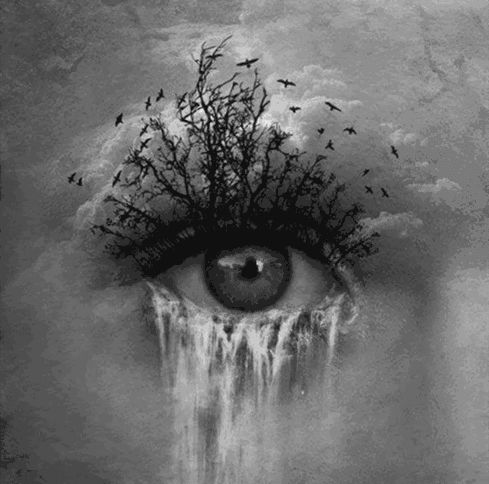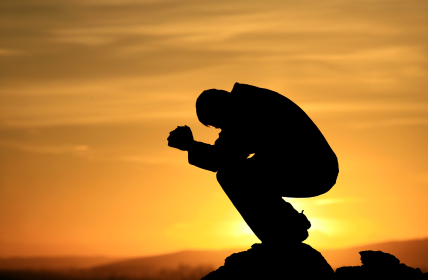As bloodshed spreads across “cratered streets with shrapnel-riddled shells of ambulances and rebar twisting out of wreckage like lost tentacles,” a father comes to realize the true costs of war…

by: Ryan Karr
You never liked holding my hand, until you did, and by then it was too late. A few years back your mother and I walked you to the schoolhouse for your first day of school. The streets were alive with bartering and gossip as the sunrise basked the towering Citadel in a warm glow. The scent of orange and lemon blossoms hung in the air. Once you saw your classmates, you tried to wriggle your hand free. You were already so strong, but I wouldn’t let go. (How could I?)
When the war reached Aleppo, I took up arms. Sometimes I’d be away for days, but you and your mother would always be waiting when I returned, helping me forget what needed to be forgotten. You asked me once why I went away so often and for so long. I said only that it was necessary. I didn’t tell you I feared the government and jihadists would destroy your childhood. I needed to stop the war before it touched you, before it changed you.
That is why I fought. I fought for you. Don’t you see?
In the spring, after the bombs stopped falling, I skipped through the park with you and your mother. We ignored the cratered streets with shrapnel-riddled shells of ambulances and rebar twisting out of wreckage like lost tentacles, and we built our city back up in our minds.
One night we laid on the roof and marveled at the supermoon. “Can I go up there someday?” you asked.
“I’ll take you there myself,” your mother replied with her first smile in many months.
The reprieve was short. The planes came roaring back, and a bomb struck our apartment. You’ve never spoken of it, though every day since I’ve imagined what happened. You reached out for your mother’s arms just before detonation; she held you as the building tumbled down. It was as loud as a hundred oak trees uprooting at once. The air was dusty but precious, the darkness total.
I raced home as soon as I heard the planes. When I arrived to find a mountain of rubble where our apartment once stood, I opened my mouth to scream but nothing came out. I thrashed at the rocks — a man possessed. Neighbors joined me, the circling planes be damned. After an eternity, I heard your faint voice cry out. Blessed girl, you mustered the strength to call for me, guiding my bloodied hands. I carried you out of the wreckage in a haze.
Then we buried your mother.
We were homeless, starving, and heartbroken. The planes came and came and came again. Asad’s savages amassed on the city outskirts and cut off all avenues of escape. The siege came down like a vice grip around our necks. But we scrounged, we grieved, and we waited for a deliverance that we knew might never come.
They stormed our city. Screams rang out as they shot at anything that moved. We ran, and I realized you knew more than any girl your age should. You knew not to ask where your schoolhouse had gone when we passed its only remnant, a disfigured jungle gym. You knew not to inspect the source of howling as we passed an overflowing field hospital. You knew not to help a runaway baby in a stroller after a sniper cut down the mother.
The space to flee shrank by the minute, until it was gone. When we could go no farther, we huddled together with thousands of others. The regime’s bombardment was a never-ending earthquake; their approaching machine gun fire, a devil’s cackle.
Sensing it was the end of our struggle brought an ounce of peace. I cherished the softness of your cheeks, the silkiness of your brown hair that streaked gold in the sun, and the way your head against my chest calmed my racing heart.
Then a miracle came. The firing stopped, and an evacuation corridor opened.
I pulled you close as our green bus weaved around the corpses and out of the city. Aleppo was more than a home, it was the anchor of our memories, your childhood, and your parents’ love. It was the place you came into this world, and where we realized just how cruel that world could be.
I told you everything would be okay as the bus crawled to a stop at a regime checkpoint. The bus door opened and a soldier motioned everyone out with a flick of his hand. You told me you didn’t want to move, but I brushed some stray hairs over your ear and offered you my hand. You took it eagerly that time. The air outside was crisp, snowflakes tickled our noses. There were no more explosions or screams. But the soldiers started checking papers, and I squeezed your fingers a little too tightly.
The trick I’ve found, chained to Asad’s prison wall, is to never close my eyes. Because when I do, I see your face as they dragged me away from you, our fingertips stretched out to each other but pulled ever farther apart.
Fighting for you, your mother, and what’s right had a price. I thought I was willing to pay it. But your face — I wasn’t prepared for that face.
The future is yours now. Your mother and I will be there with you. I know you can find your way.
I just don’t know if you can forgive me.
Ryan Karr is an American civil servant living in Australia with his wife and young daughter. He has published non-fiction essays in Inkstick Media and has degrees from Dartmouth College and Johns Hopkins University. “The Price” is his debut fiction publication. You can follow him on Twitter @RyanPKarr.





